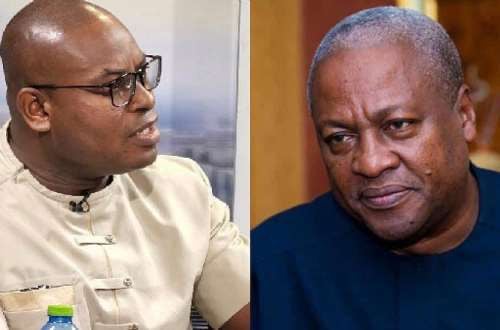The Bawku conflict, a protracted ethnic clash in Ghana’s Upper East Region, has recently witnessed a resurgence of violence, resulting in fatalities and heightened insecurity. This renewed unrest has drawn criticism towards President John Dramani Mahama’s administration, particularly from the opposition New Patriotic Party (NPP). Richard Ahiagbah, the NPP’s National Communications Director, has publicly expressed disappointment in the President’s handling of the situation, accusing him of failing to live up to his campaign promise of prioritizing peace in Bawku. The conflict, primarily between two ethnic groups, has disrupted daily life, forced school closures, and prompted evacuation efforts for students caught in the crossfire. The government has responded by reviewing curfew measures in the affected areas, but the underlying tensions remain a significant challenge to regional and national stability.
The core of the criticism revolves around President Mahama’s perceived inaction and the perceived discrepancy between his campaign rhetoric and the unfolding reality in Bawku. Ahiagbah’s statements underscore the public’s growing concern over the escalating violence and the lack of tangible progress towards a peaceful resolution. While acknowledging the efforts of traditional leaders like the Asantehene, Otumfuo Osei Tutu II, in mediating the conflict, Ahiagbah highlights the inadequacy of security measures in protecting lives and property. The NPP’s critique essentially questions the President’s commitment to his own promise and emphasizes the urgency of the situation, given the continued loss of life and the disruption of social order.
The recent surge in violence has had a devastating impact on the local population, especially students. The closure of schools disrupts education and adds another layer of complexity to an already volatile situation. The evacuation of students, while necessary for their safety, underscores the severity of the conflict and the failure of security measures to contain the violence. This displacement further adds to the humanitarian crisis and highlights the urgent need for a comprehensive and effective strategy to address the root causes of the conflict and ensure the safety and well-being of all residents.
The government’s response, primarily focused on curfew adjustments, appears insufficient to address the underlying issues fueling the conflict. While curfews can temporarily restrict movement and potentially reduce immediate violence, they do not offer a long-term solution. The absence of a comprehensive strategy that tackles the root causes of the conflict, coupled with the perceived lack of effective security deployment, fuels the criticism directed at the President. The situation calls for a multi-faceted approach that includes robust security measures, sustained dialogue between the conflicting groups, and addressing socio-economic factors that may contribute to the ongoing tension.
The Bawku conflict represents a significant challenge to Ghana’s peace and stability. The ongoing violence not only impacts the immediate communities involved but also has broader implications for the country as a whole. The failure to effectively address the conflict undermines the rule of law and erodes public trust in the government’s ability to maintain security. The situation necessitates a concerted effort from all stakeholders, including the government, traditional leaders, civil society organizations, and the international community, to find a lasting resolution. This requires a commitment to addressing the underlying causes of the conflict, fostering reconciliation, and promoting peaceful coexistence.
The criticisms leveled against President Mahama’s handling of the Bawku conflict highlight the urgent need for decisive action. The continuing violence, displacement of students, and the disruption of daily life underscore the severity of the situation. The government must move beyond reactive measures like curfew adjustments and implement a comprehensive strategy that addresses the root causes of the conflict, strengthens security measures, protects civilians, and promotes dialogue and reconciliation. Failure to do so will not only prolong the suffering of the people of Bawku but also pose a serious threat to Ghana’s overall peace and stability. The international community also has a role to play in supporting Ghana’s efforts to resolve this conflict and prevent further escalation.


